The state of media today has shifted. Journalists’ platforms, priorities, and expectations are changing more rapidly today than ever. At the same time, the relationships between journalists, social media, how they share content, and even their views of PR professionals are also evolving. See below for a comprehensive State of Journalism Today Media Report from Muck Rack, a media monitoring tool, on how journalists think about content, social media, and their role in delivering news and headlines.
News Consumption, Credibility & Reporting
According to the media report, 90% of the stories had something to do with COVID-19. This certainly makes sense. Journalism today revolves around everything under the sun. So if you think about the pandemic’s effects on the world, business, and the economy, you might understand why so many journalists covered the topic.
Also, 86% of journalists said that COVID-19 had affected their work in some capacity, with 19% being influenced by layoffs and furloughs.
When the journalists were asked the question about the optimism of their profession, their reviews were split. 58% of journalists are optimistic about their profession, while 42% are pessimistic. This is one reason why journalism today is not necessarily an easy profession to get into.
Journalists were also asked where they go to get their news. 58% of journalists get their news from other online newspapers and magazines. 16% get their news from Twitter. These data points are down from 2020, but not by much. Journalists also get their news from cable, print newspapers, radio, online newsletters, other social media platforms, and podcasts.
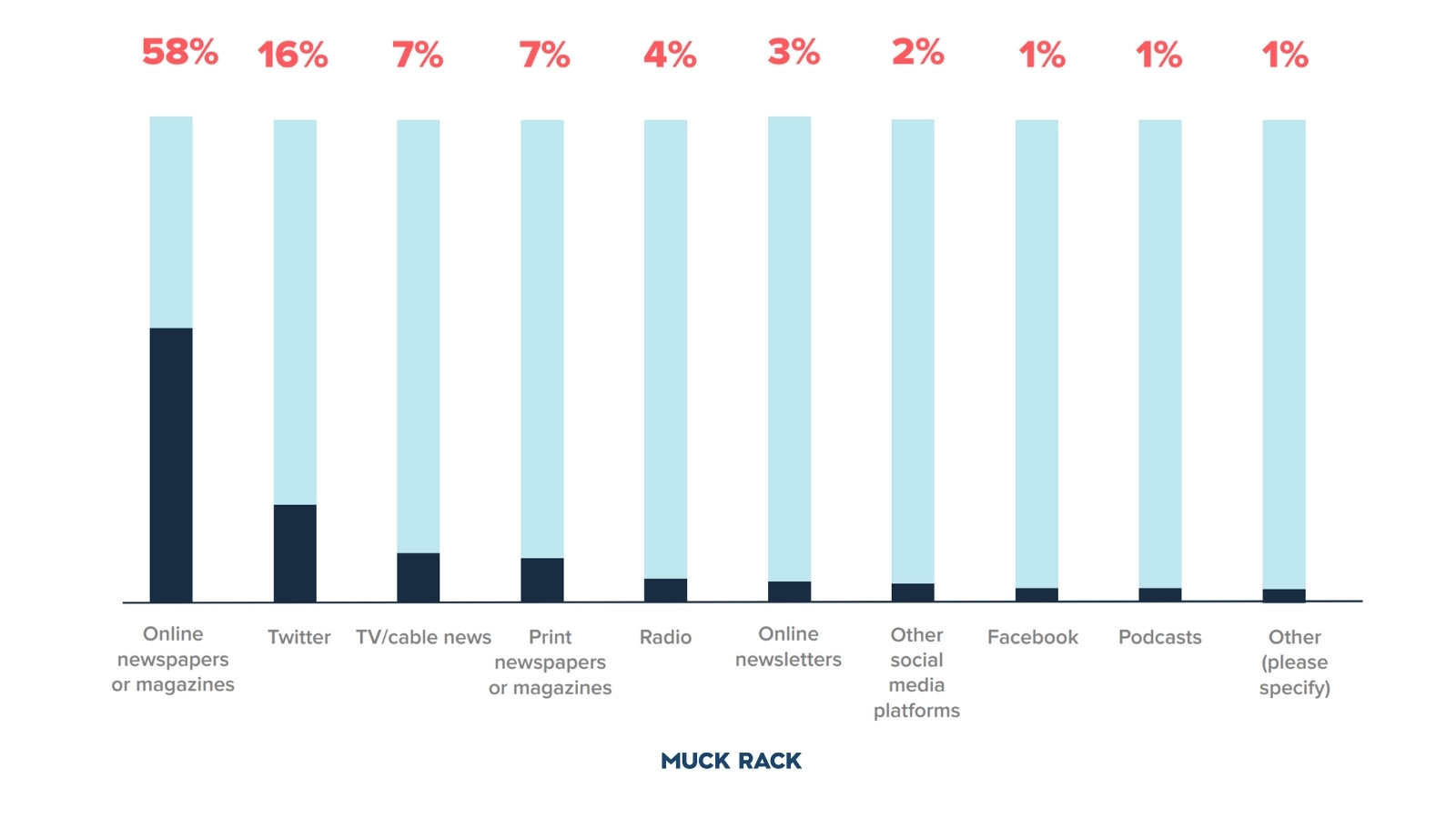
Journalist Thoughts On Credible Sources
Most journalists find academic subject matter experts (86%) and CEOs (74%) credible reporting sources. What I found interesting was that more journalists (55%) find PR pros working for companies more credible than PR pros who work for agencies (34%). I’m not sure I understand the rationale. At times, the state of media today doesn’t make sense to me, but I digress.
Other credible sources include bloggers, social media personalities, celebrity spokespeople, and self-appointed subject matter experts. Another fascinating insight here is that 5% did not select any of these sources as being credible. I’m curious why. But hey, journalism today is changing.
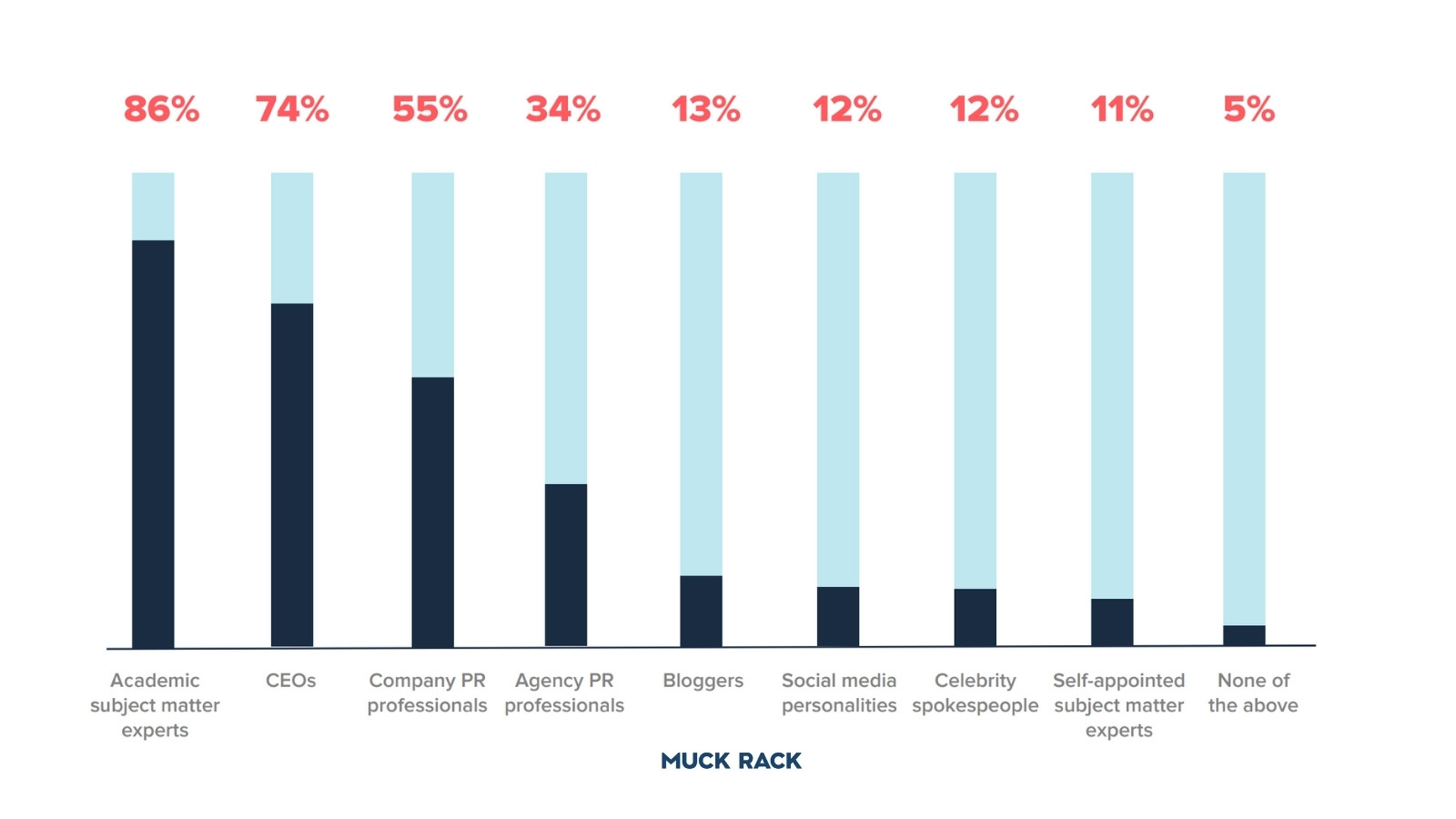
Journalist’s Social Media Usage
When journalists were asked which social network they find the most valuable, 76% said they use Twitter. Interestingly enough, this is down 11% from last year in 2020. Journalists typically use other social networks: Facebook, LinkedIn, Instagram, YouTube, Reddit, and TikTok.
In the future, 37% of journalists will spend more time using Twitter, 28% on LinkedIn, 26% on Instagram, and 23% on YouTube. Another interesting data point is that 34% plan to use Facebook less, followed by Twitter by 16%.
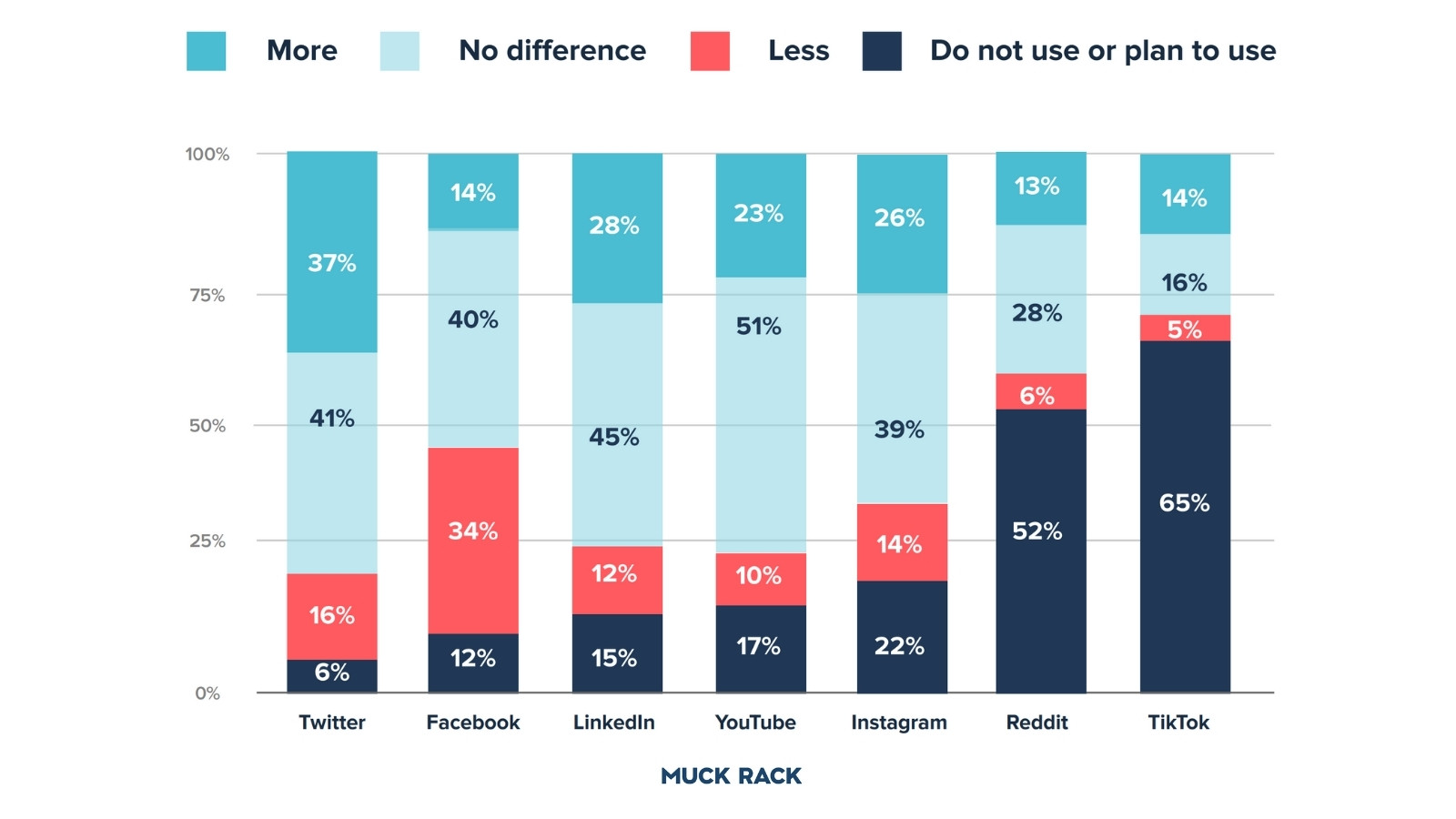
This next series of questions kind of confused me. When reporting on a company, they ask journalists if they consult the company’s social media channels. In this case, 6% say they never consult a company’s social media channels, followed by 8% rarely, 13% always, 28% sometimes, and 45% usually. This question assumes that someone on the PR team manages the brand’s social channels.
While this may be the case for some companies, most other companies use it to engage in social media conversations with their community and not necessarily share company news.
Journalists Sharing Their Stories
When asked if journalists track how often their stories and articles are being shared on social media, 62% said yes, while 38% said no. A follow-up question was about the shareability of a story. I get excited about this type of data because it is actionable. The question is, will PR pros use this to inform how they pitch stories and the type of assets they include in each? Data-driven media can help take PR pros from “hoping” to “knowing” their communication programs deliver business value.
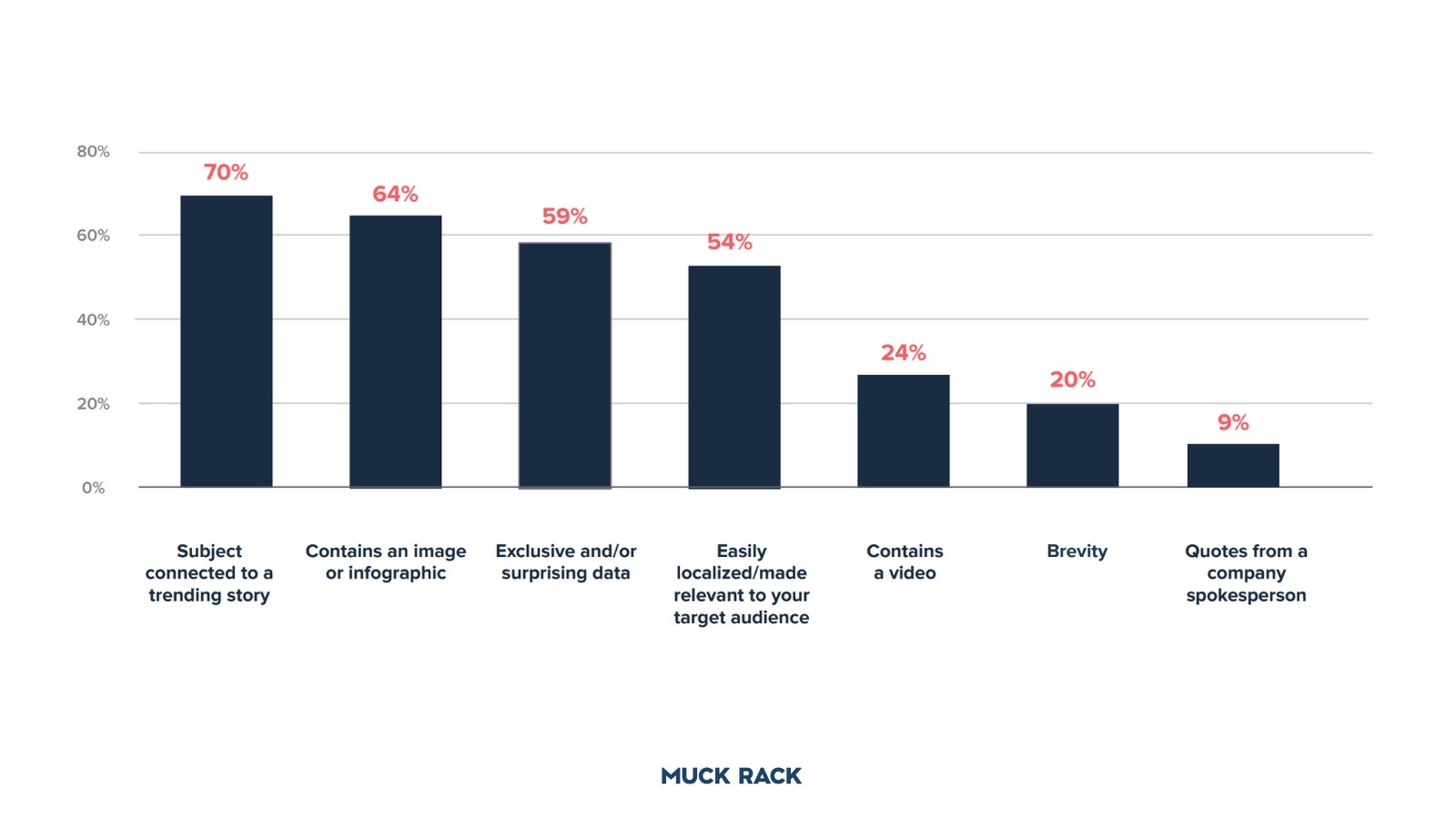
Media Relations in 2021: Pitching Preferences
As you build your future PR skills, take note of the following line of questions. It got me thinking about public relations as an industry and, more importantly, how it needs to evolve and change. The state of journalism today is changing faster than most other industries.
When journalists were asked if they felt the information companies were sharing was outdated, 14% strongly agreed, and 47% agreed. This tells me that companies must rethink how they engage with the media. It’s that simple.
Also, when journalists were asked how they see their relationship with PR agencies and teams, only 6% say it’s a partnership, 59% see the relationship as mutually beneficial but not quite a partnership, 18% see the relationship as agnostic but not necessarily a bad thing, and 17% say it’s a necessary evil. So PR teams need to be worried about this.
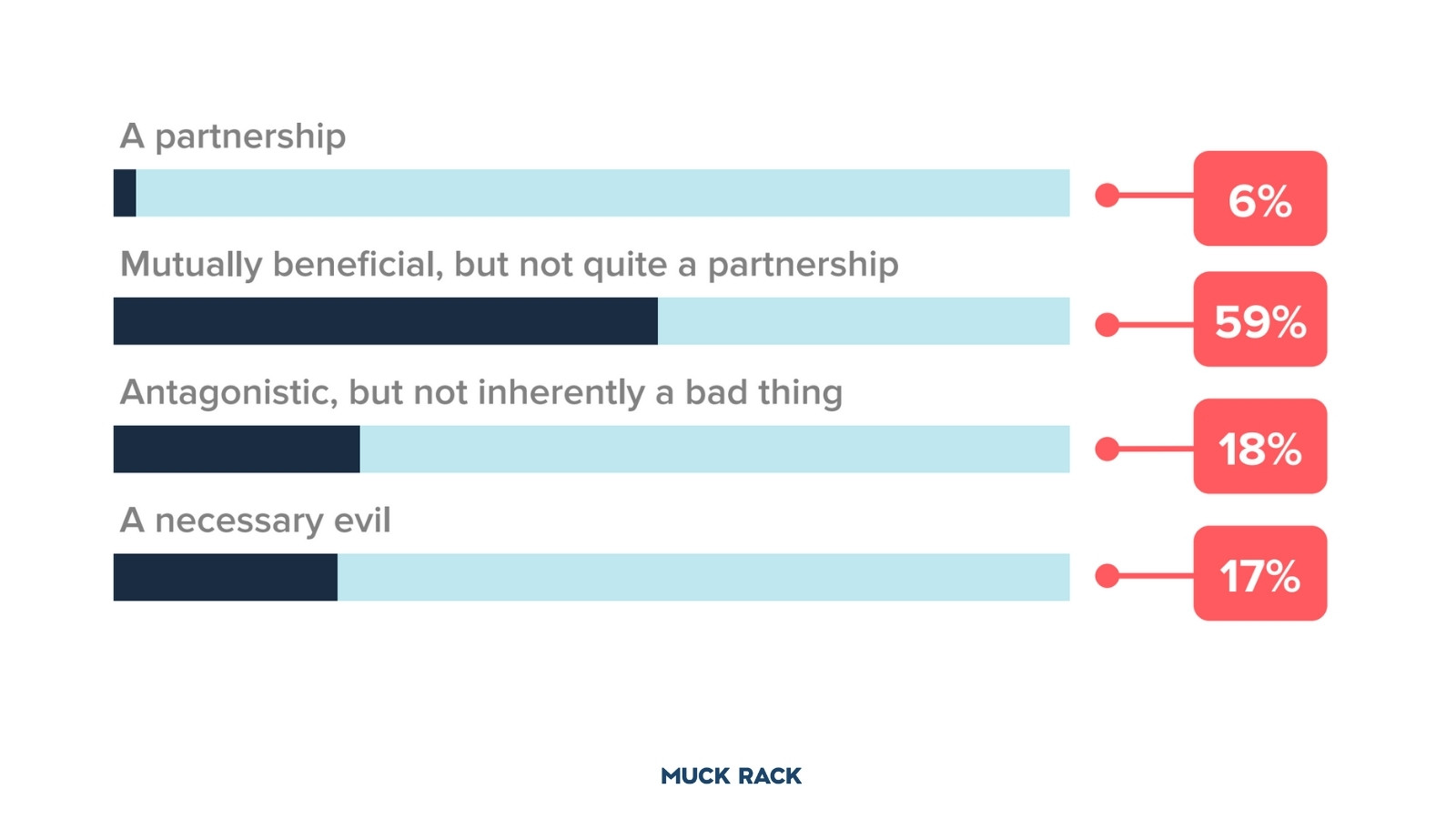
The good news is that journalists are just as likely to respond to pitches as a year ago. While 22% of journalists said they’re less likely to respond to pitches, 22% said they’re more likely to, and the remaining 56% said they’re just as likely to.
When journalists were asked why they immediately rejected otherwise relevant pitches, 25% said it was terrible timing, followed by 21% lack of personalization, 15% too lengthy, 12% confusing subject line, and 3% large attachments.
Additionally, 94% of journalists prefer a 1:1 email when pitched, Followed by 18% on the newswire, 12% on Twitter, 10% on the phone, and 9% on other social media networks.
It should also be noted that 57% of the journalists prefer to be pitched on a Monday, followed by 20% on Tuesday, 6% on Friday, and 6% on Sunday. They also like to be pitched in the morning. 34% prefer early morning between 5:00 AM and 9:00 AM, and 34% prefer late morning between 9:00 AM and 12:00 PM. Finally, it should be noted that 12% of journalists do like being pitched overnight between 11:00 PM and 5:00 AM.
When asked how many pitches journalists receive on the average business day, 43% say between 1-5, followed by 21% 6-10 and 13% 11-20. As a follow-up, journalists were asked how many stories they published during the average week, and 31% of journalists published between 2-4 novels per week, followed by 22% of journalists who published more than 11 stories per week.
When it comes to exclusives, journalists were asked how likely they are to cover a specific story. 78% of journalists say they are at least somewhat more likely to cover a story if offered an exclusive, 10% say no more likely, 12% say it depends, and under 1% say less likely. You can download the full report here.
